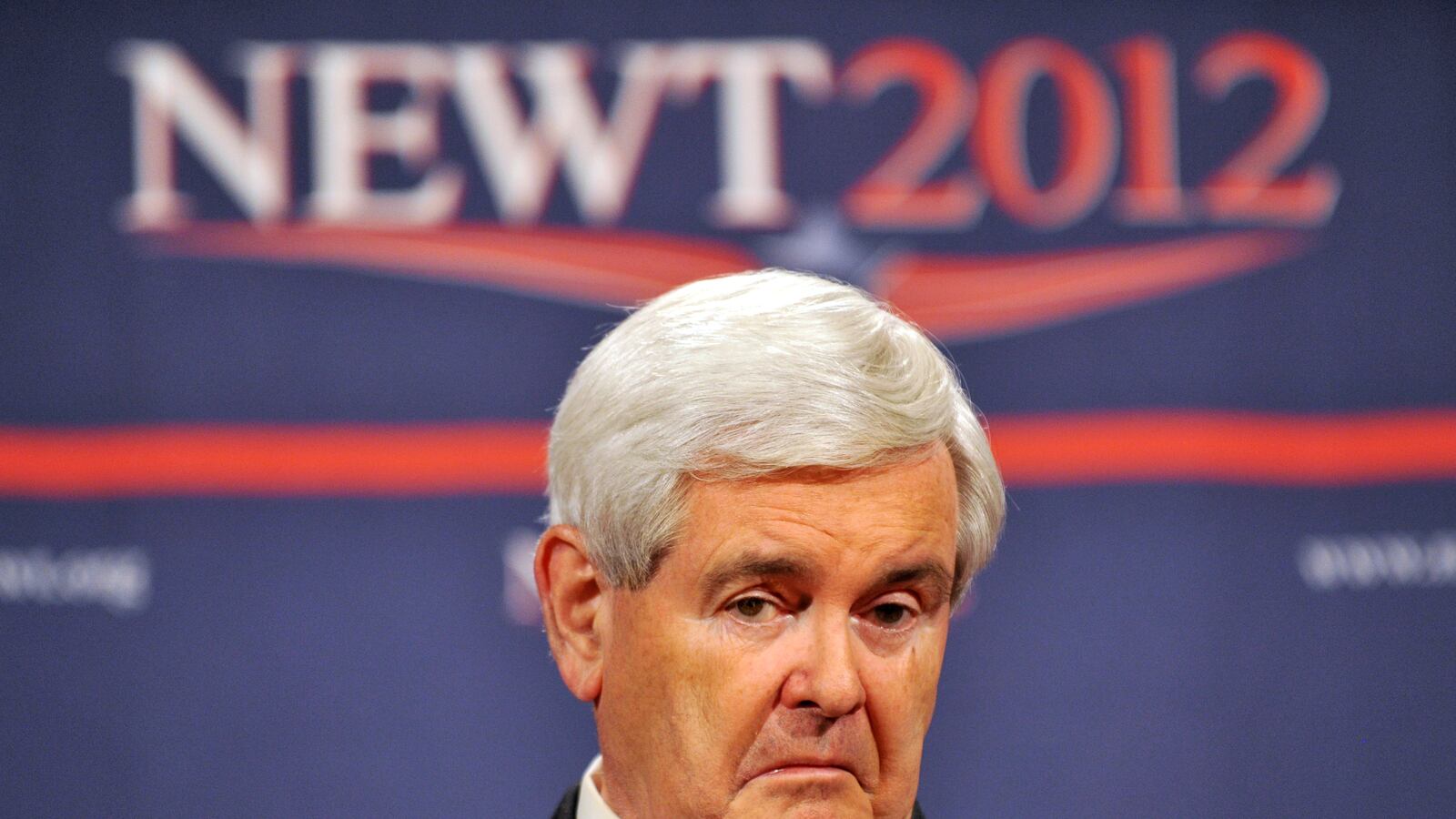
In my column for the CNN, I explore Newt Gingrich’s political future:
The New York Times reported Saturday that billionaire casino owner Sheldon Adelson, who has been supporting Gingrich's presidential bid, has told Romney that "he will provide even more generous support to his candidacy if he becomes the Republican nominee." Adelson's "affection for and loyalty to Mr. Gingrich have not blinded him to the reality that the nominating contest is tilting in Mr. Romney's favor," according to the Times.
So what does Gingrich do next?
Option 1: Fight to the bitter end, money or no money.
Option 2: Try to make a deal now, in hope of gaining something in exchange from the Romney campaign—a speaking slot at the convention, some kind of advisory role in a Romney administration.
Pretty obviously, neither of those options leads anywhere good. Option 1 could rapidly lead to public humiliation, Option 2 to lingering private humiliation.
Which leaves Option 3:
Retire quietly from the field, no deal, and hope that Romney loses in November and that Gingrich can then claim the "told you so" rights of the party elder statesman over the next four years?
If Romney wins, what future does Gingrich have, really?
But if he loses, Gingrich can fill the hours on Fox with messages conservatives will want to hear:
• We lost because we nominated a moderate.
• I was the real conservative in the race. Had the party nominated me, I would have pummeled Obama in the debates and won the election.
• Next time, listen to me!
If the GOP were to lose in 2012, the next cycle could be the most wide open since 1940. There would be no "runner-up" to claim the nomination next time, the way Romney claimed it in 2012 or John McCain in 2008 or Bob Dole in 1996 or George H.W. Bush in 1988.






